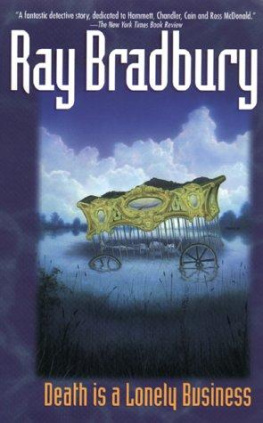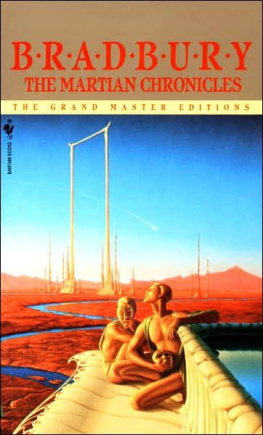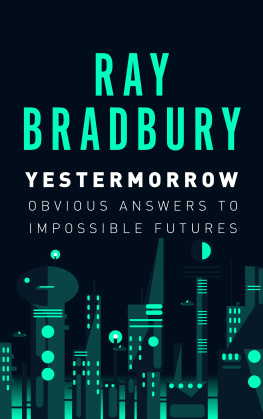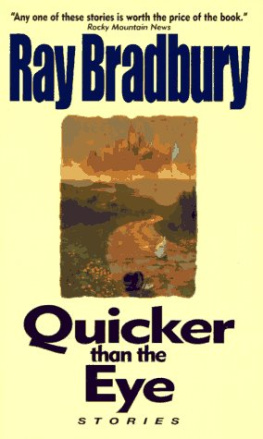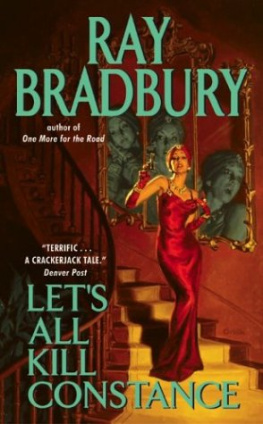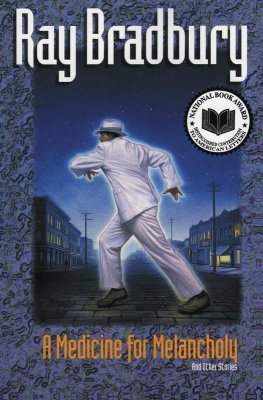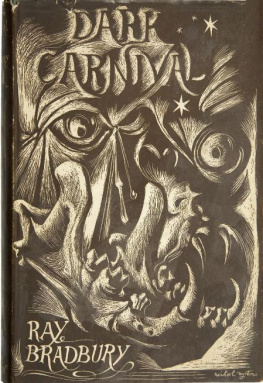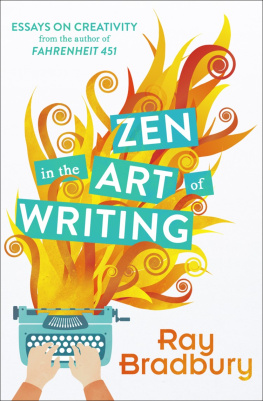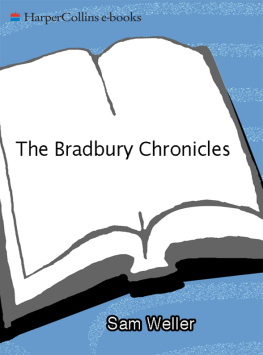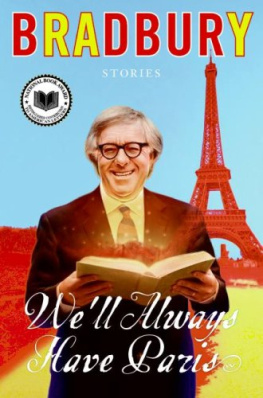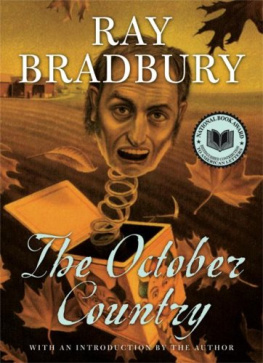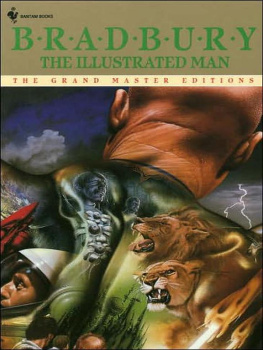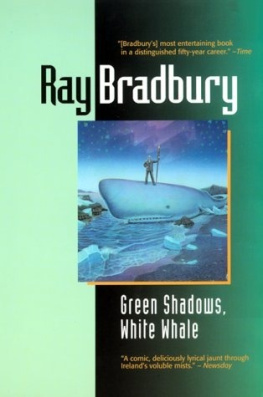DEATH IS A LONELY BUSINESS
Ray Bradbury
Venice, California, in the old days had much to recommend it to people who liked to be sad. It had fog almost every night and along the shore the moaning of the oil well machinery and the slap of dark water in the canals and the hiss of sand against the windows of your house when the wind came up and sang among the open places and along the empty walks.
Those were the days when the Venice pier was falling apart and dying in the sea and you could find there the bones of a vast dinosaur, the rollercoaster, being covered by the shifting tides.
At the end of one long canal you could find old circus wagons that had been rolled and dumped, and in the cages, at midnight, if you looked, things lived, fish and crayfish moving with the tide; and it was all the circuses of time somehow gone to doom and rusting away.
And there was a loud avalanche of big red trolley car that rushed toward the sea every half-hour and at midnight skirled the curve and threw sparks on the high wires and rolled away with a moan which was like the dead turning in their sleep, as if the trolleys and the lonely men who swayed steering them knew that in another year they would be gone, the tracks covered with concrete and tar and the high spider-wire collected on rolls and spirited away.
And it was in that time, in one of those lonely years when the fogs never ended and the winds never stopped their laments, that riding the old red trolley, the high-bucketing thunder, one night I met up with Death's friend and didn't know it.
It was a raining night, with me reading a book in the back of the old, whining, roaring railcar on its way from one empty confetti-tossed transfer station to the next. Just me and the big, aching wooden car and the conductor up front slamming the brass controls and easing the brakes and letting out the hell-steam when needed.
And the man down the aisle who somehow had got there without my noticing.
I became aware of him finally because of him swaying, swaying, standing there behind me for a long time, as if undecided because there were forty empty seats and late at night it is hard with so much emptiness to decide which one to take. But finally I heard him sit and I knew he was there because I could smell him like the tidelands coming in across the fields. On top of the smell of his clothes, there was the odor of too much drink taken in too little time.
I did not look back at him. I learned long ago, looking only encourages.
I shut my eyes and kept my head firmly turned away. It didn't work.
"Oh," the man moaned.
I could feel him strain forward in his seat. I felt his hot breath on my neck. I held on to my knees and sank away.
"Oh," he moaned, even louder. It was like someone falling off a cliff, asking to be saved, or someone swimming far out in the storm, wanting to be seen.
"Ah!"
It was raining hard now as the big red trolley bucketed across a midnight stretch of meadow-grass and the rain banged the windows, drenching away the sight of open fields. We sailed through Culver City without seeing the film studio and ran on, the great car heaving, the floorboard whining underfoot, the empty seats creaking, the train whistle screaming.
And a blast of terrible air from behind me as the unseen man cried, "Death!"
The train whistle cut across his voice so he had to start over.
"Death...
Another whistle.
"Death," said the voice behind me, "is a lonely business."
I thought he might weep. I stared ahead at the flashing rain that rushed to meet us. The train slowed. The man rose up in a fury of demand, as if he might beat at me if I didn't listen and at last turn. He wanted to be seen. He wished to drown me in his need. I felt his hand stretch out, and whether as fists or claws, to rake or beat me, I could not guess. I clutched the seat in front of me. His voice exploded.
"Oh, death!"
The train braked to a halt.
Go on, I thought, finish it!
"Is a lonely business!" he said, in a dreadful whisper, and moved away.
I heard the back door open. At last I turned.
The car was empty. The man had gone, taking his funeral with him. I heard gravel crunching on the path outside the train.
The unseen man was muttering out there to himself as the doors banged shut. I could still hear him through the window. Something about the grave. Something about the grave. Something about the lonely.
The train jerked and roared away through the long grass and the storm.
I threw the window up to lean out and stare back into wet darkness.
If there was a city back there, and people, or one man and his terrible sadness, I could not see, nor hear.
The train was headed for the ocean.
I had this awful feeling it would plunge in.
I slammed the window down and sat, shivering. I had to remind myself all the rest of the way, you're only twenty-seven. You don't drink. But...
I had a drink, anyway.
Here at this far lost end of the continent, where the trail wagons had stopped and the people with them, I found a last-stand saloon, empty save for a bartender in love with Hopalong Cassidy on late night TV.
"One double vodka, please."
I was astounded at my voice. Why was I drinking? For courage to call my girlfriend, Peg, two thousand miles away in Mexico City? To tell her that I was all right? But nothing had happened to me, had it?
Nothing but a train ride and cold rain and a dreadful voice behind me, exhaling vapors of fear. But I dreaded going back to my apartment bed, which was as empty as an icebox abandoned by the Okies on the way west.
The only thing emptier was my Great American Novelist's bank account in an old Roman temple bank building on the edge of the sea, about to be washed away in the next recession. The tellers waited in rowboats every morning, while the manager drowned himself in the nearest bar. I rarely saw any of them. With only an occasional sale to a pulp detective magazine, there was no cash to deposit. So ...
I drank my vodka. I winced.
"Jesus," said the bartender, "you look like you never had booze before!"
"I never did."
"You look horrible."
"I feel horrible. You ever think something awful is going to happen, but you don't know what?"
"It's called the heebie-jeebies."
I swallowed more vodka and shivered.
"No, no. Something really terrible, closing in on you, is what I mean."
The bartender looked over my shoulder as if he saw the ghost of the man on the train there.
"Did you bring it in with you?"
"No."
"Then it's not here."
"But," I said, "he spoke to me, one of the Furies."
"Furies?"
"I didn't see his face. God, I feel worse now. Good night."
"Lay off the booze!"
But I was out the door and peering in all directions to catch the thing that was waiting for me. Which way home, so as not to meet up with darkness? I chose.
And knowing it was the wrong choice, I hurried along the dark rim of the old canal toward the drowned circus wagons.
How the lion cages got in the canal no one knew. For that matter, no one seemed to remember how the canals had gotten there in the middle of an old town somehow fallen to seed, the seeds rustling against the doors every night along with the sand and bits of seaweed and unravelings of tobacco from cigarettes tossed along the strand-shore as far back as 1910.
But there they were, the canals and, at the end of one, a dark green and oil scummed waterway, the ancient circus wagons and cages, flaking their white enamel and gold paint and rusting their thick bars.
A long time before, in the early Twenties, these cages had probably rolled by like bright summer storms with animals prowling them, lions opening their mouths to exhale hot meat breaths. Teams of white horses had dragged their pomp through Venice and across the fields long before MGM put up its false fronts and made a new kind of circus that would live forever on bits of film.

